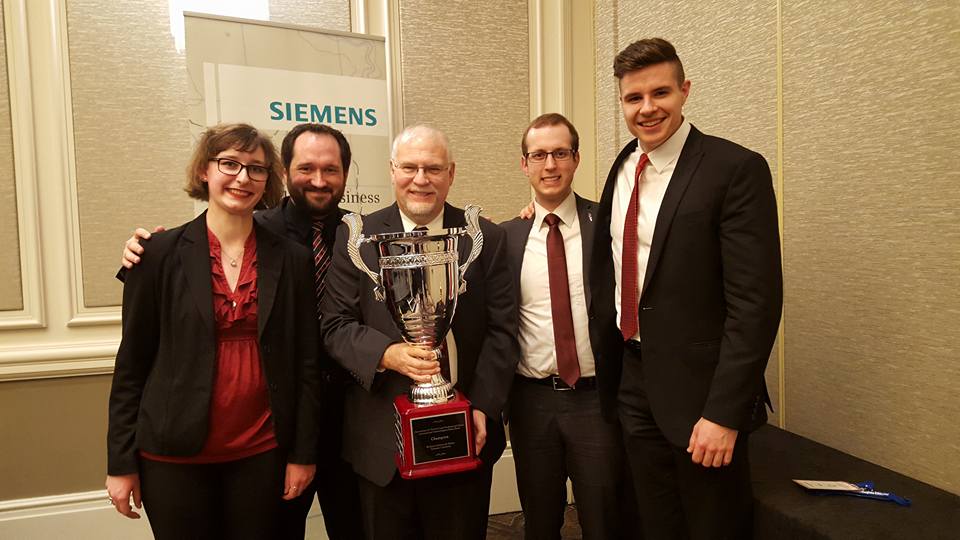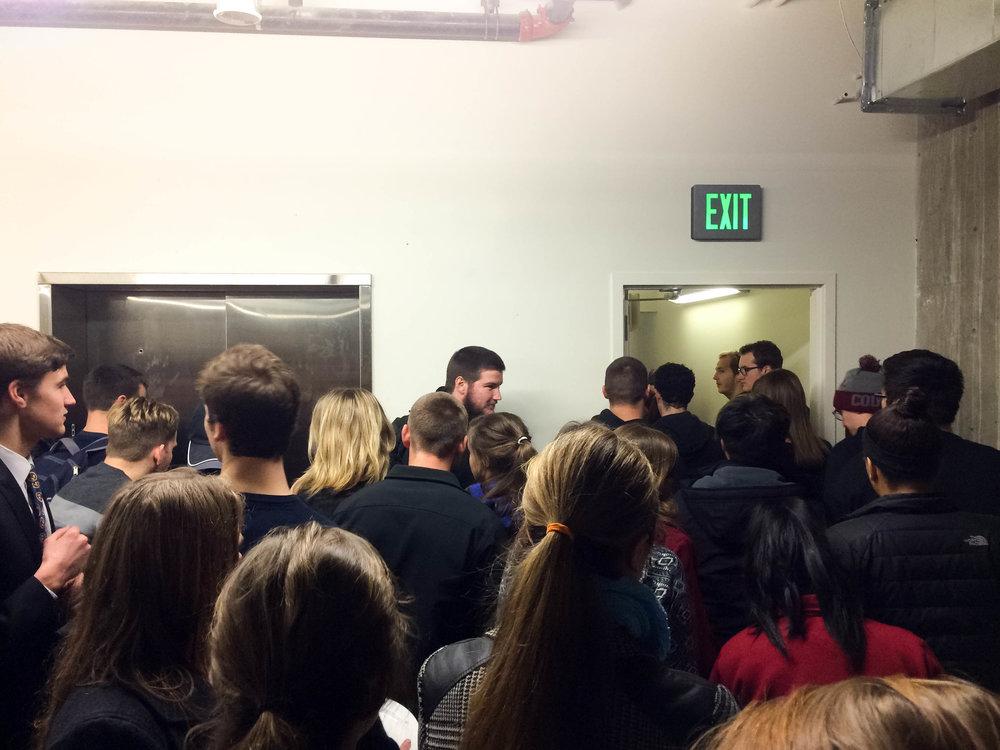In 2015 there were 64 school shootings nationwide, according to Everytown for Gun Safety, a database and research group.
While most of those were minor with few or no injuries, some became headlines when multiple people were killed. Since school shootings became more prevalent in national news and politics after the Sandy Hook Elementary School shooting in 2012, the debate over gun regulations and guns on campuses has escalated.
Currently, Washington State Legislature states the “possession or use of firearms, explosives, dangerous chemicals or other dangerous weapons or instrumentalities on the university campus” is listed under prohibited conduct. Whitworth’s Student Handbook echoes that, stating, “Whitworth is a weapons-free campus.”
“I cannot imagine walking into a classroom and thinking ‘someone in this class might have a gun,’” said political science professor Kathy Lee, moderator of a “God and Guns” panel discussing Christianity and gun ownership (see pg. 7). “So when I look at the University of Texas I completely understand why some faculty at the University of Texas are thinking ‘I’m not sure I either can or want to teach here anymore’ for reasons of personal safety as well as just is this a place where guns should be?”
Lindy Scott, world languages and cultures professor and a panelist on the “God and Guns” panel, echoed Lee’s concerns over faculty and student safety if guns were to come on campus in students’ hands.
“My personal opinion is that would probably heighten insecurity on campus, because many accidents take place,” Scott said.
Of the 284 respondents to a survey by The Whitworthian asking if students should be allowed to carry firearms on campus, some students brought up the threat of accidental injuries or deaths.
Seventy-three percent of those surveyed believed students should not be allowed to carry guns on campus.
A minority percentage of those surveyed argued students should be allowed to carry guns with proper background checks and training. Some acknowledged safety risks, but believed firearms should be allowed for recreational purposes off campus including hunting and target shooting.
State legislature does allow exceptions for “authorized university purposes” including labs that would create explosions or utilize dangerous chemicals. Another exception is security guards.
“As security officers we should be allowed to carry weapons, because by virtue of our job we are ‘to be in harm’s way,’” security officer Mac McCall said. “But because we don’t have the tools necessary to fulfill those responsibilities to its fullest extent then we are in essence like the rest of the professors and staff. We can only do so much and we are limited.”
McCall believes without guns Whitworth security officers are restricted in their range of response to possible security threats to the campus.
“Now we’re the first responders,” McCall said. “If we get a call that there’s an active shooter let’s say in the HUB, we’re limited in our response because we don’t have the means to go in there and stop the bad guy. We’ll just be like one of the professors walking in there and he’s got all the power, and the motivation, and the intent and the capability to create mayhem and we have not the means to stop him because we don’t have a weapon.”
Sixty-three percent of survey respondents support allowing security officers to carry guns. Respondents cited student safety and the threat of active shooters as reasons for security guards to carry guns.
“I personally feel extremely unsafe knowing that our security officers do not carry,” a survey respondent said.
Faculty participants in the “God and Guns” panel support security carrying guns with significant training.
“If you’re going to have anyone trained and anyone responding it’s better to have a few people like security guards trained and able to mobilize very quickly, instead of a few or a bunch of profs and students who are not well trained,” Scott said.
Lee agreed extended training and retraining would be necessary if security guards would be given weapons. Survey respondents also suggested requiring bi-annual mandatory firearm training and mental evaluations along with policies describing where firearms can be kept on campus.
State laws and campus policies both allow exceptions for guards to carry weapons, but administration has not held a public discussion on the issue. Despite McCall’s concerns, security officers cannot currently protect campus to the fullest extent possible.
“These concerns have been brought up to the administration and the answers we have gotten back is that the university is not at this point willing to accept the liability associated with arming security personal,” McCall said.
Some supporters for guns on campuses argue an armed security force or students would prevent or diminish the injuries and deaths caused by campus shootings.
“That’s a known fact,” McCall said. “I’ve talked with police officers and they’ve stated that we have learned a lesson from Columbine, because when Columbine had their shooting the officers who responded had to wait for the response force, STOP teams to come in. Those were precious minutes wasted, and in those minutes more damage and mayhem was being performed.”
Some survey respondents agreed that armed security guards would better protect campus in the event of an emergency. Scott sees police officers and well trained security guards in a similar light when placed in an emergency setting.
“I think that would meet almost every argument for the safety of people on campus, ‘what about people on campus, Virginia Tech. kind of mass shootings?’” Scott said. “I think that would meet that criticism without opening up everyone or other people having guns which then leads to accidental shootings. I would have no problem with that.”
If the current state law changed to allow universities to decide campus weapons policies, Whitworth administration may begin the discussion of allowing all community members to carry guns onto a Christian campus.
As a Christian university the debate to allow or prohibit firearms includes both a legal and moral side.
Referencing Luke 22:36, Scott believes Christians should not express their faith in a violent manner.
“It does not seem persuasive to me the argument that Jesus, after teaching nonviolence his whole ministry, after practicing nonviolence his whole ministry, is arguing for the use of the sword in a violent way,” Scott said.
Following Apostle Paul’s teaching, “If it is possible, as far as it depends on you, live at peace with everyone,” McCall believes Christians can live in peace until encountering an individual who desires to cause “mayhem” or “destruction” (Romans 12:18).
“Now when you talk about guns and Christianity, people have a misconception that Christians are not supposed to defend themselves, that the turning of the other cheek means you are supposed to be a punching bag and that is not what that verse means,” McCall said.
There are multiple views on gun safety, laws and regulations for on campus use. Each side offers a variety of options from no restrictions on gun citing Second Amendment rights to students with proper licenses being allowed to carry on campus with safety issues being brought up by both sides. The debate over security using firearms on campus could increase safety with proper training or lead to accidental shootings.
“Like so many of our social issues there’s room for debate,” Lee said.
Contact Karlin Andersen at kandersen18@my.whitworth.edu









 Spokane?
Spokane?